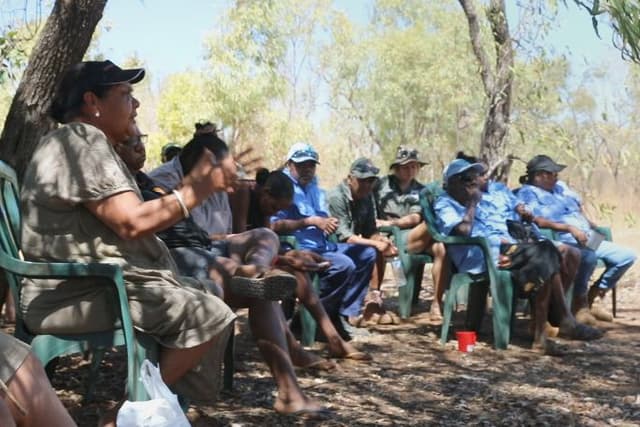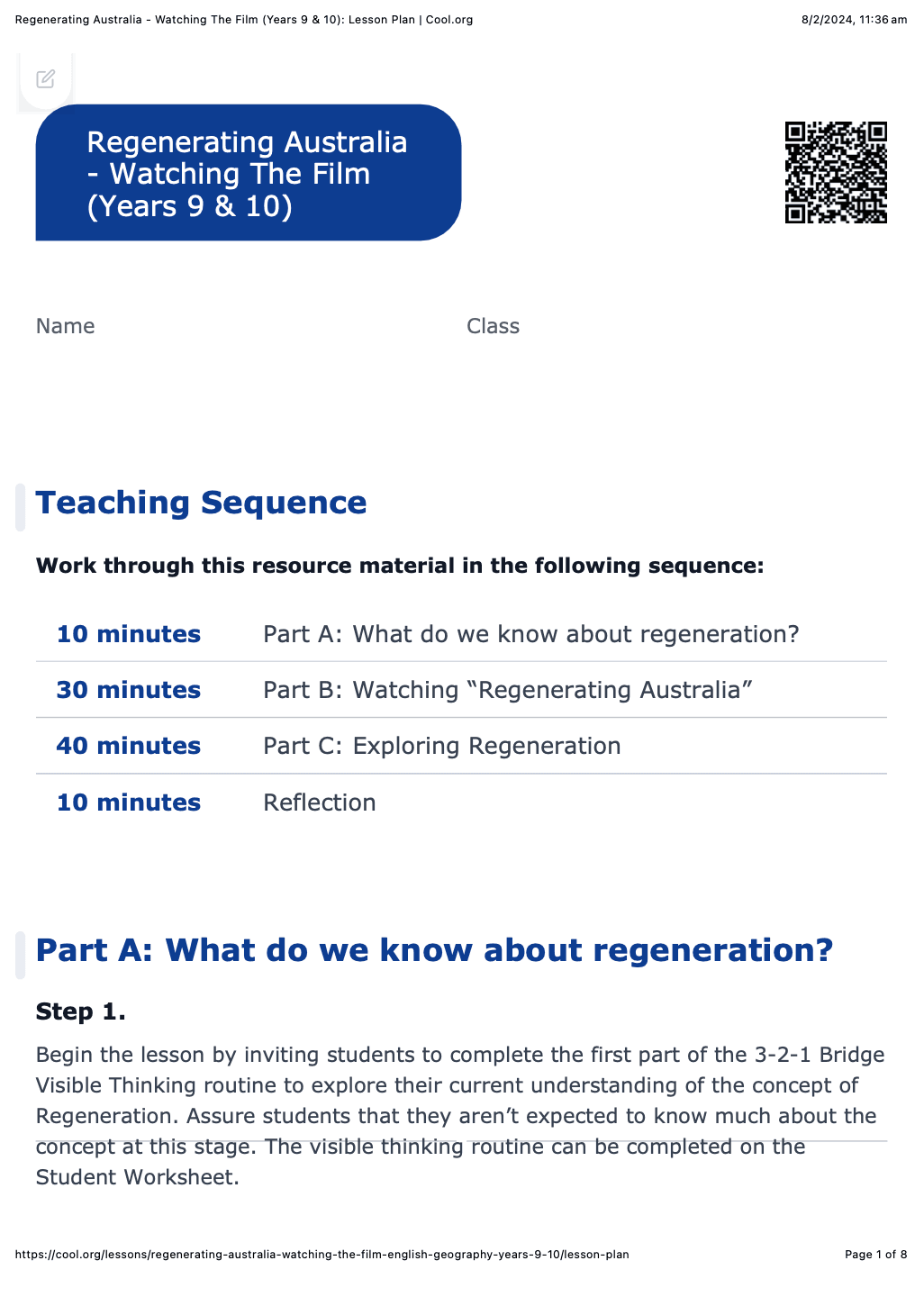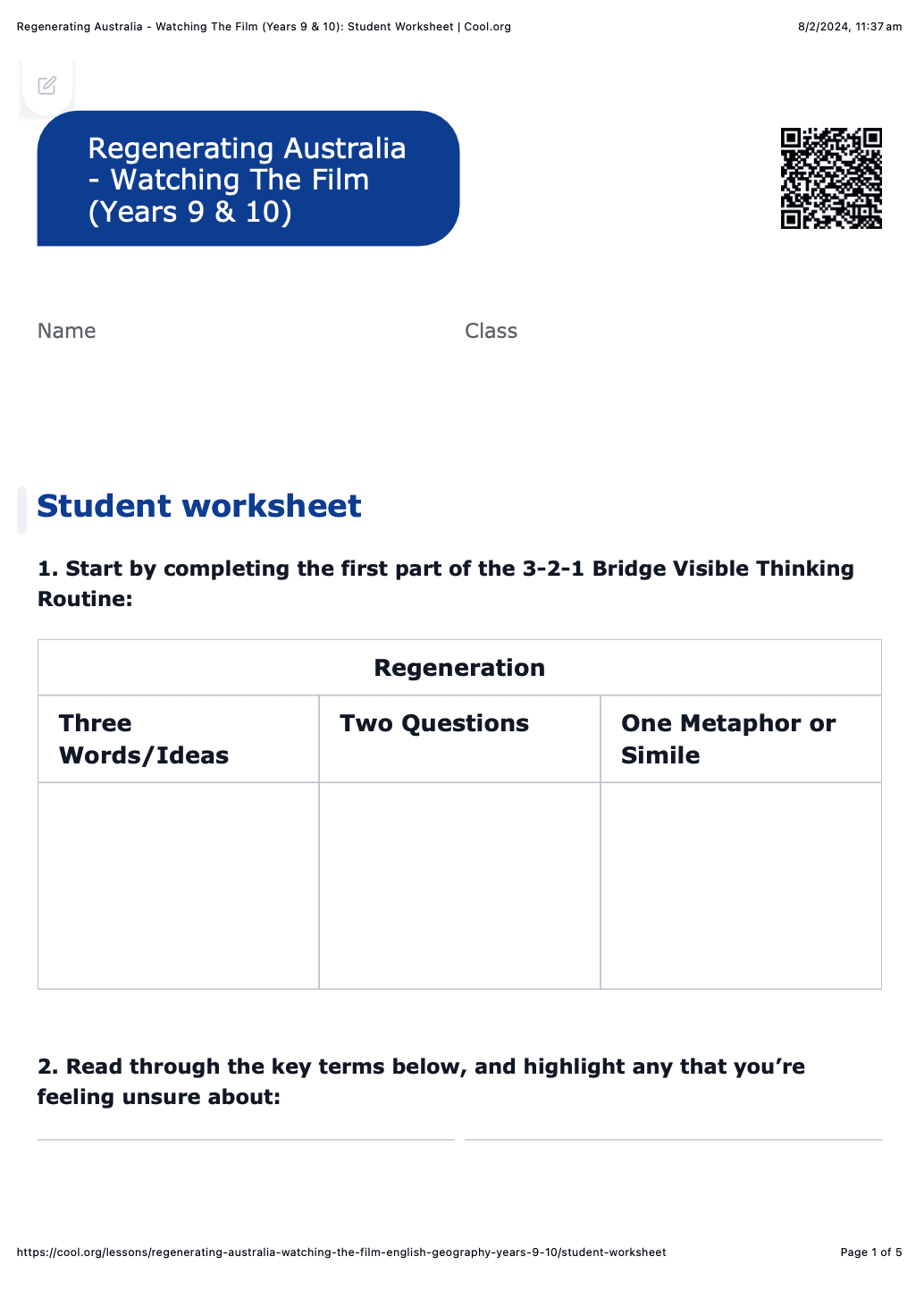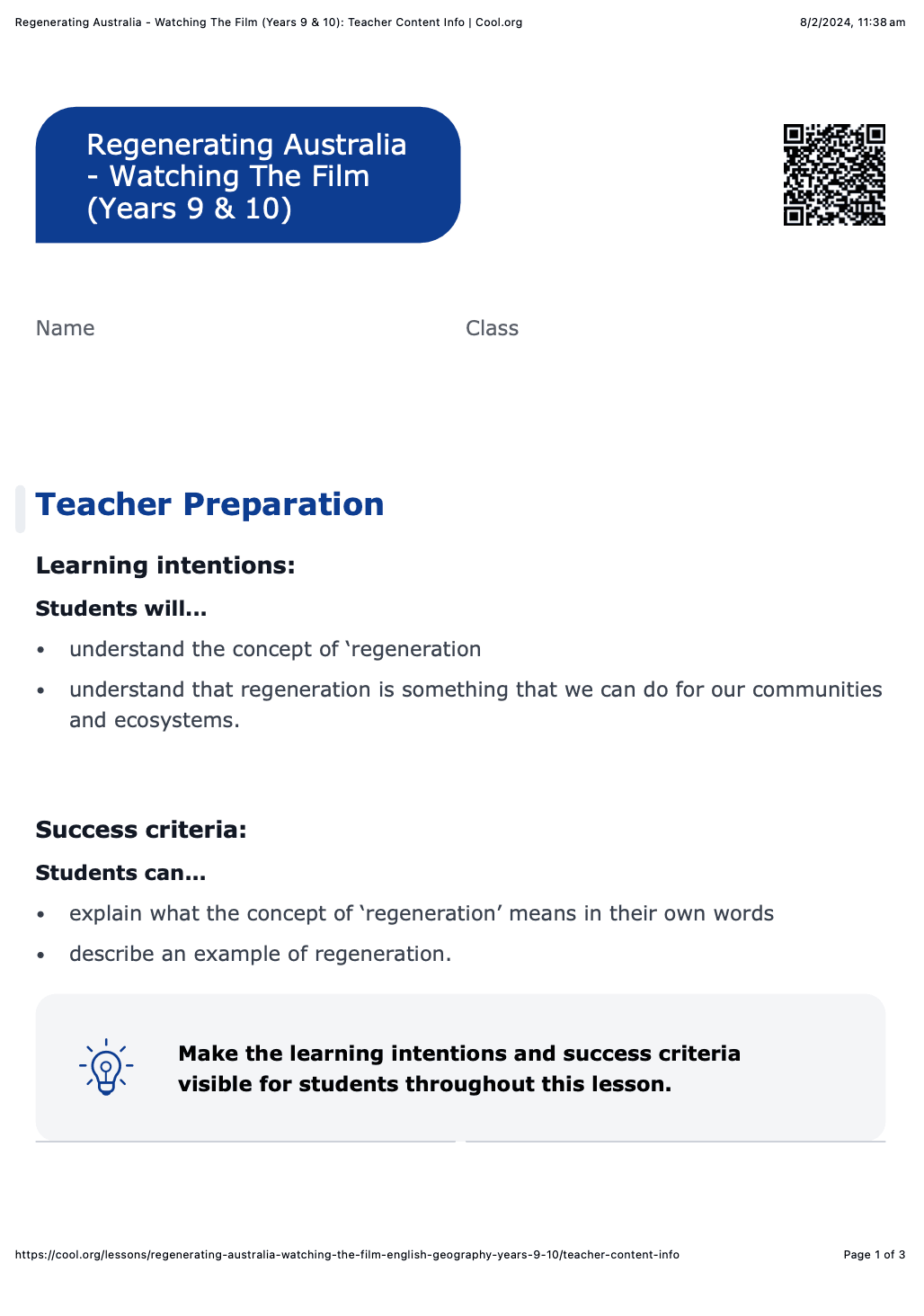
Regenerating Australia - Watching The Film (Years 9 & 10)
Lesson3 of 3 in this unit
SecondaryYear 9 - 10EnglishLearning through filmHumanities and Social SciencesCivics and CitizenshipEnvironmentalClimate ChangeSustainabilityEconomicDesign ThinkingIndustry, Innovation and Infrastructure
Summary
Lesson Guides and Printables
Lesson Plan

Student Worksheet

Teacher Content Info
